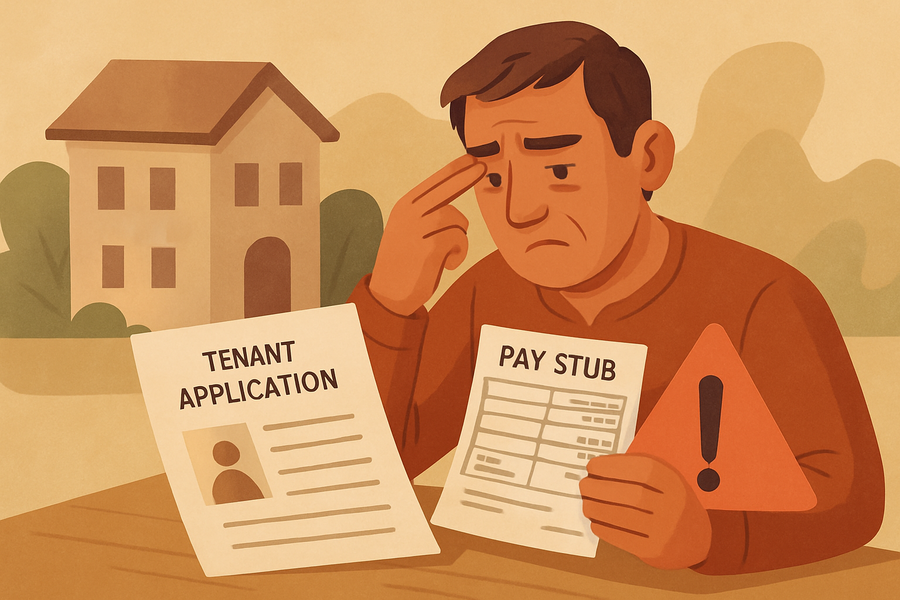How Not to Get Sued (Part 2)

We had such an overwhelming number of great questions during a recent webinar with Puneet Singh on How Not to Get Sued. So here you go! Your questions, answered by various attorneys at the Law Offices of Kimball, Tirey, and St. John LLC.
Kimball, Tirey & St. John LLP specializes in business and real estate law, landlord/tenant, and collections with offices throughout California. This article is informational only and should not be used as legal advice. Check with your attorney before acting. If you have any questions regarding the answers provided below please call (800) 525-1690.
Service Animals
Q. Can you ask for paperwork showing that a pet is an assistance animal? May we ask for proof on assisted animals and not take the word of the applicant? What type of proof will do?
A. You are entitled to verification that the resident has a disability and needs the animal due to the disability, unless the disability and need are apparent. The verification does not need to be in any particular form or format and can come from a health care provider or a non-health care provider source such as a credible third party in a position to know about the person’s disability and needs, a peer support group, or a non-medical service agency.
Q. The TAA conference says even if it’s an ADA pet, it’s a good idea they sign the TAA pet addendum. Do they need to or not?
A. Since pet addenda often contain things that are not appropriate for assistive animals (such as pet deposits, pet rent, restrictions on size, type, breed or numbers of pets and restrictions on where the resident can take the animal in the community) we recommend utilizing a separate addendum of rules of conduct for assistive animals that covers behavior issues such as keeping the animal leashed, cleaning up after it, making sure it doesn’t create a nuisance or act aggressively, etc.
Q. I’ve seen online that people can buy an emotional distress animal form for $150. Is that something that can be used or do the pet owners have to have a form from a medical professional?
A. The HUD and Department of Justice Joint Statements on Reasonable Accommodations and Assistance Animals state that verification can come from a medical professional or other sources: a credible third party in a position to know about the person’s disability and needs, a non-medical service agency, a peer support group or a self-statement such as proof that a person under 65 is receiving SSI or SSDI (which would prove the disability itself, but you would still be entitled to verification of the disability-related need for an animal). A certificate or card showing that the animal is registered as an emotional support animal does not meet the verification test as those certificates and cards can be purchased without any proof of disability and disability-related need.
Q. Do accommodation pets still have to follow community policies?
A. Landlords may establish reasonable rules of conduct for assistive animals. Since pet addenda often contain things that are not appropriate for assistive animals (such as pet deposits, pet rent, restrictions on size, type, breed or numbers of pets and restrictions on where the resident can take the animal in the community) we recommend utilizing a separate addendum of rules of conduct for assistive animals that covers behavior issues such as keeping the animal leashed, cleaning up after it, making sure it doesn’t create a nuisance or act aggressively, etc.
Q. Are we able to charge a Pet Deposit for Service Animals?
A. No, you cannot charge a pet deposit or an increased security deposit for an assistive animal.
Q. If I charge two times the rent for an unfurnished property can I also add a pet deposit?
A. It depends on the laws of your state regarding security deposit. In California, you would not be able to charge an additional pet deposit because the maximum total security deposit allowed by CA law is 2x the rent for an unfurnished unit. You can never charge a pet deposit for an assistive animal, regardless of what state you are in.
Security Deposits
Q. Does a tenant lose the right to dispute the deposit if the payment was made electronically? Do you need to have them accept the amount of the deposit before transferring?
A. No, the tenant does not lose the right to dispute the deposit if the payment was made electronically. The second part of the question is unclear so more information is needed before an answer can be provided.
Harassment/Discrimination
Q. What is the landlord’s obligation to address harassment of protected classes by other tenants?
Landlords should have a zero tolerance policy towards harassment of any kind. When tenants are harassing others based on their protected class, the landlord can be held liable for discrimination if the landlord does not take affirmative action to stop the harassment. The harassers should be warned in writing that the behavior is unacceptable, that it constitutes discrimination (which the landlord does not tolerate from anyone) and that if it continues, the landlord may have to terminate the tenancy. If the harassment doesn’t stop, the landlord should take steps to terminate the tenancy in accordance with relevant state landlord-tenant law.
Disabilities
Q. I have a senior apartment building and I only have room for 3 handicapped parking spaces. What can I do if I have more than 3 tenants with handicapped tags?
A. The first thing you should do is have the property evaluated by a Certified Access Specialist (CAsP) to make sure that the current parking configuration complies with all applicable accessibility laws. Assuming the parking configuration is in compliance, then your only obligation would be to try and accommodate any resident that asked for a parking accommodation. This can include things like giving a resident an assigned space if parking is not normally assigned; giving the resident a different assigned space (if one is available); putting the resident at the top of any wait list for the next available space that meets his/her needs (behind anyone on the list that does not have a disability-related parking request, but ahead of any other parking accommodation requests already on the list); or offering to let the person out of their lease without penalty if you cannot meet their disability-related parking needs.
Q. If we were built in 1988, then we do not need handicap parking, correct?
A. Not necessarily. If you have any public parking (for example, future resident parking) the property must have disabled parking in order to comply with the ADA, which does not grandfather-in older properties. If all of your parking is private (i.e., reserved for residents) then you may not need disabled parking under the federal Fair Housing Act. However, some states and local jurisdictions may require it. The best way to ensure that your property is in compliance with all relevant accessibility laws is to have the property evaluated by a Certified Access Specialist (CAsP).
Q. What notification is required from a tenant in the event of a change of disability status, i.e. if in mid-lease he or she becomes disabled, or now requires a service animal?
A. The only time a tenant would be required to notify you of a disability would be if the tenant was requesting a reasonable accommodation (such as an assistive animal) or a reasonable modification (a physical change to the unit or common areas to allow the resident full and equal use and enjoyment of the property). If the tenant makes an accommodation or modification request, then you are entitled to verification of disability and disability-related need for the accommodation/modification, unless either or both are readily apparent.
Q. We are an historic building and we do not have elevators or parking spaces and we only have stairs. Are we in danger of ADA Laws?
A. Possibly. The best way to ensure that your property is in compliance with all relevant accessibility laws is to have the property evaluated by a Certified Access Specialist (CAsP).
Q. If someone breaches the lease and we have multiple complaints in writing, why can’t we evict them? Since we are not allowed to ask about their mental illness?
If a resident’s behavior is caused by a known or suspected mental disability, there is generally a responsibility to try and accommodate the person before evicting. This generally means giving the person extra opportunities to comply with the lease before taking steps to evict. If the person still doesn’t comply, you may ultimately have to evict.
No-Smoking
Q. Can tenants who use e-cigarettes be denied for tenancy in a non-smoking building?
A. Tenants who use e-cigarettes cannot be denied housing (Fair Housing issues), even in smoke-free complexes, based on their use of e-cigarettes, however, complexes can regulate smoking on the premises, including the use of e-cigarettes. Existing laws in California restrict or prohibit the smoking of tobacco in various public places, including residential dwelling units. Senate Bill 648 was proposed in 2013 to expand the definition of smoking tobacco to include e-cigarettes and “vaping.” Many California cities have ordinances that prohibit smoking (including vaping) in multi-unit housing complexes, including, Santa Rosa, Foster City, San Mateo County, El Cerrito, Los Angeles County, Corte Madera, and Mammoth Lakes, and many leases will individually regulate smoking and vaping within their buildings and/or common areas.
Q. If a tenant is smoking pot in a unit and then produces a medical card, must I allow him to smoke in the unit?
A. There are arguments to be made for not allowing it. Even if your state has legalized marijuana for medical purposes, marijuana is still an illegal drug under federal law. Also, if the drifting smoke is bothering other residents, you may be able to argue that this is a nuisance. Some landlords decide not to focus on the issue of state vs federal law and instead focus on the drifting smoke. If the resident can find another method of using the medical marijuana that doesn’t involve smoking (and thus doesn’t disturb the neighbors) then the landlord will allow it. Other landlords take a “zero tolerance” approach due to the illegality under federal law and the issue of drifting smoke.
Cleaning/Maintenance/
Q. What would you suggest we do if a tenant is not cooperating with management’s efforts to perform pest control (bed bug) treatments?
If a resident is not complying with management’s efforts to perform pest control for bed bugs, such as not preparing their unit, first look to the lease agreement to see if it contains language that would make it possible to enforce the necessary treatment. However, if the lease agreement does not include specific language about bed bugs, or pest control in general, it may be possible to serve a 3-Day Cure Covenant or Quit Notice for a breach of some other provision of the lease agreement, such as failing to maintain a clean and sanitary household, in order to either obtain possession of the unit or to force the resident to comply with pest control requirements.
Q. Are bed bugs a tenant-caused problem therefore it’s there responsibility to get rid of them?
A. Bed Bugs are known as the hitchhikers of the insect world. They are most often carried into the unit on someone’s clothing or by hiding in used electronics, furnishings, or other items. It is often very difficult to determine the source of a bed bug infestation unless it can be pinpointed to one specific unit. However, even then, the resident may not even know how the infestation occurred or that they are the source. Because California Civil Code Section 1941 states that a landlord must repair items that make the property uninhabitable, it is the landlord’s responsibility to obtain and provide proper pest control treatment unless the lease agreement provides specific language that places the responsibility on the tenant to pay for, or reimburse the landlord for, the cost of necessary treatment.
Q. What if you can certify that that you did not rent the unit infested with bed bugs? That the resident brought them in?
A. Many landlords now use leases that include a bed bug addendum that states, among other things, that the unit was free of any bed bug infestation at the time the resident took possession of the unit. The addendum will often shift the burden of the cost of any bed bug treatment needed after the resident takes possession of the unit to the resident, unless it can be shown that the source of the infestation is another unit. Absent specific language to that effect, the landlord remains responsible under California law to provide a habitable property and provide necessary treatment and/or repairs for uninhabitable conditions, including a bed bug infestation.
Q. Under the new mold law, if a tenant requests a mold test by a third-party are we required to have it done? Is it only considered mold when code compliance says it is mold?
A. The new mold law does not require testing by a third-party if requested by a tenant. The new law also provides that in order for suspected mold to be considered a substandard condition, it must be identified as mold by a health or code enforcement officer.
Q. What about mold in a garage? Is that enough for a tenant to break a lease?
A. A tenant may terminate the lease in situations where defects in the premises (including the garage) are serious and directly related to the tenant’s health and safety and the defect was not of the tenant’s own making. In order for the tenant to utilize this remedy, the tenant must first give the landlord oral or written notice of the defect and a reasonable time to make repairs.
Q. On the topic of hoarding, would you recommend contacting the city officials to help with the residence being unsanitary?
A. This is a possibility. However, you need to realize that many city agencies (such as fire, health, or code enforcement) will cite the landlord for violations, rather than citing the tenant. You might check to see if there is a hoarding task force in your area as sometimes they can point you and/or your tenant in the direction of resources that can help without getting the property cited for code violations. If you Google “hoarding task forces” it will direct you to a website that has a list of all hoarding tasks forces in the U.S.
Q. How do we accommodate hoarding? Health and Safety, Fire Hazard. Why should a landlord spend money cleaning up their messes?
A. Because hoarding is a mental disability, landlords are generally required to try and accommodate by working with the resident to give them time to remedy the health and safety issues. The goal is not for the landlord to spend money cleaning up the unit, but rather to get the tenant to clean up the unit. This can involve breaking what needs to be done down into manageable tasks and giving reasonable time periods for accomplishment of each task. You should consult with an attorney who has experience dealing with fair housing and hoarding situations for specific advice if you encounter a hoarding situation, as no two situations are exactly alike and mishandling the matter can result in potential fair housing liability.
Employment
Q. What would you do if an employee request to have a dog in the office and some of your employee are allergic to pet?
A. The Americans with Disabilities Act (ADA) does require employers to make “reasonable accommodations” for employees with qualifying disability if doing so won’t impose an “undue hardship” on the operation of the employer’s business. An allergy is likely to be covered as a disability under the ADA (which covers “a physical or mental impairment that substantially limits one or more of the major life activities”). If a doctor can come up with some reasonable accommodations to address the allergy, the employer has to either grant the accommodation, engage in the interactive process with the doctor and the employee to come up with an alternative accommodation, or demonstrate an undue hardship.
If there is no accommodation that would allow the employee to work in the presence of dogs, then the other question to ask is of the employer, namely, whether the dogs are an accommodation for anyone else’s disability. (The ADA also covers emotional support dogs and service dogs, so you have a real problem if the dogs are there due to disabilities of coworkers.) If not, then a reasonable accommodation might be to ask that the dogs be kept at home or in a doggy day care.
One accommodation that would work would be banning all the dogs (except service dogs) from the office. That is something the employer needs to consider seriously. An accommodation is not reasonable and does not need to be offered if it would create an ‘undue hardship’ for the employer. Usually that means an unreasonable expense to the employer. But here, there would not be a direct expense of banning dogs from the office. Rather the employer should consider the impact of the accommodation upon the operation of the facility, including the impact on the ability of other employees to perform their duties and the impact on the facility’s ability to conduct business. Banning the dogs would lower morale, but it would not appear to harm the business itself or the business’ operations. This is not a veterinary clinic where it is necessary to have dogs in the workplace. The business can presumably operate without animals in the workplace. So while banning dogs may be a drastic change and hurt morale, the employer must consider doing this in order to comply with the ADA.
Other
Q. Can you give example of an out of pocket loss for late rent? And, is this California law? Does it apply to all states?
A. An example of “out of pocket loss” for late rent would include time and money a landlord may spend on collecting rent from a tenant when they pay rent late. Late fees are allowed only if they are specified in the lease and only if the actual cost to the landlord can be determined. In this case, it is important to only charge the tenant the actual cost and keep back up materials used to calculate the actual cost.
Under California law, if the exact cost to the landlord for a tenant breach can be calculated, only the actual cost may be charged to a tenant. If the actual cost to the landlord cannot be determined with certainty then consider refraining from charging any amount, or be very conservative when setting the amount. You should also keep backup materials used in your unsuccessful attempt to calculate the actual cost to the landlord. If you decide to list an amount in the lease as a liquidated damage amount, include specific language in liquidated damage clauses to increase the likelihood of surviving judicial scrutiny. Your attorney can assist you in drafting the appropriate language for your lease.
Lastly, before imposing late fees, the landlord should conduct a risk/benefit analysis. Keep in mind that if a late fee is challenged, a landlord may be required to defend itself in a lawsuit and will incur defense costs even if the charge is later deemed by a court to be acceptable
This advice is specific to California only, we recommend you contact an attorney in your state to determine which laws apply to late fees.
Q. Regarding outdated leases which were signed in a time period where the details WERE legal, should they be resigned with currently legal leases?
A. The legal terms of the original lease would still apply. However, the costs of outdated leases with provisions that are no longer legal, could lead to unwanted rent claims, attorney’s fees and litigation costs, therefore, whenever possible it is best to execute new, updated leases with updated provisions. For a comprehensive list of prohibited items, see California Civil Code Section 1953.
Q. Can a tenant deny requests for showings after giving notice to move out?
A. Under California Civil Code Section 1954(a)(2), a landlord has a right to enter a rental unit to show the unit to prospective tenants after giving at least 24-hours written notice to the tenant, or if the tenant consents to the entry. Entry must be made during regular business hours and should otherwise be reasonable. This is the case whether the tenant gives the landlord a notice of intent to vacate the unit or the landlord terminates the tenancy. However, it is never a good idea to force the issue and demand entry into a unit if a tenant makes it clear that they do not consent to entry into their unit, as they might try to claim that the landlord is invading the tenant’s privacy or using the entry as a means to harass the tenant.
Q. Would like to know if the 21 day security deposit refund requirement refers to the day the deposit is mailed and what about ACH payments that take an extra day to process. Tenants often think they should “receive” the deposit in 21 days.
A landlord must provide an accounting of a security deposit to the tenant no later than 21 days after the tenant has vacated. The accounting, and any refund of the deposit, must be postmarked on or before the 21st day. If you are returning the refund via automated clearinghouse (ACH), you must initiate the transfer before the end of the 21st day.
Q. We are an SRO, if a person or applicant have a child, we tell them that this building is only for one person…is this okay?
A. It may depend on the laws of your state that govern SROs as well as your state fair housing enforcing agency’s position on what a reasonable occupancy standard is for an SRO. You should consult with an attorney in your state that is experienced in handling fair housing matters.
The post How Not to Get Sued (Part 2) appeared first on The Official AppFolio Blog.








